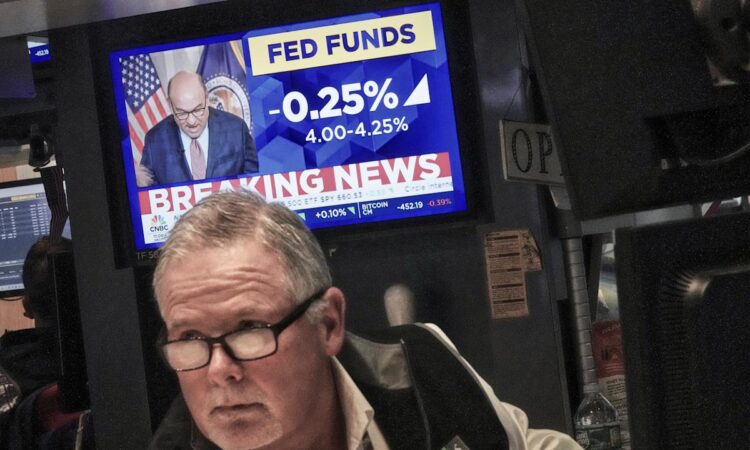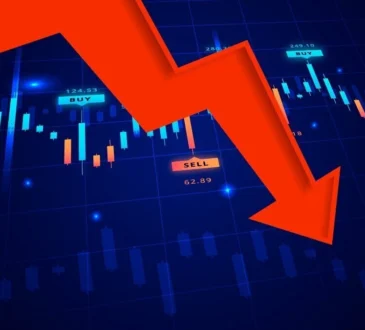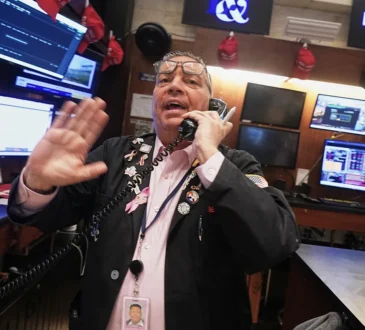
NEW YORK (AP) — If the U.S. government’s latest shutdown can’t stop the stock market, what can?
Stock prices keep rising, even as the shutdown delays important economic reports that usually steer trading. The S&P 500 and Dow Jones Industrial Average set all-time highs Friday.
It’s not just Big Tech driving the market, which has often been the case in recent years. Sure, Nvidia and other darlings of the artificial-intelligence frenzy are still climbing, but almost everything on Wall Street is coming up a winner. The Russell 2000 index of smaller stocks has set a record after taking nearly four years to get back to its prior all-time high. Gold also hit a record in an unusual confluence, while the most popular U.S. bond fund is on track for its best year in at least five.
Past shutdowns have had minimal effect on the stock market or on the economy, and the bet on Wall Street is that something similar will happen again. Many professional investors expect the market to climb still more, even after a 35% surge from its low in April.
That’s not to say there aren’t risks. Much of the optimism is built on expectations for certain things to happen. If they don’t, the pretty picture on Wall Street could become much uglier. Among the potential concerns:
Stocks are expensive
This is the easiest criticism to make about the stock market following its nearly relentless rally since April. Stock prices tend to follow the path of corporate profits over the long term, but stock prices have surged much faster than profits lately.
One measure popularized by Nobel-winning economist Robert Shiller, which looks at profits over the preceding 10 years, shows the S&P 500 near its most expensive level since the 2000 dot-com bubble. Some critics have made parallels between that bubble, which saw the S&P 500 eventually halve in value, and the recent AI bonanza.
It’s not just the big household names in the S&P 500 index raising concern. Ann Miletti, head of equity investments for Allspring Global Investments, has been struck by how much stock prices have shot up for speculative kinds of stocks, such as smaller, money-losing companies. They’ve done much better than their profitable counterparts in recent months.
She said she’s feeling relatively optimistic about conditions for stocks going into 2026, but “it’s these little bubbles that are concerning to me. When you see things like this, it’s generally not a good thing.”
To be sure, signals suggesting a too-expensive stock market are famously bad at predicting turning points in the market. Stocks can stay expensive for a while, as long as investors stay willing to pay the high prices.



